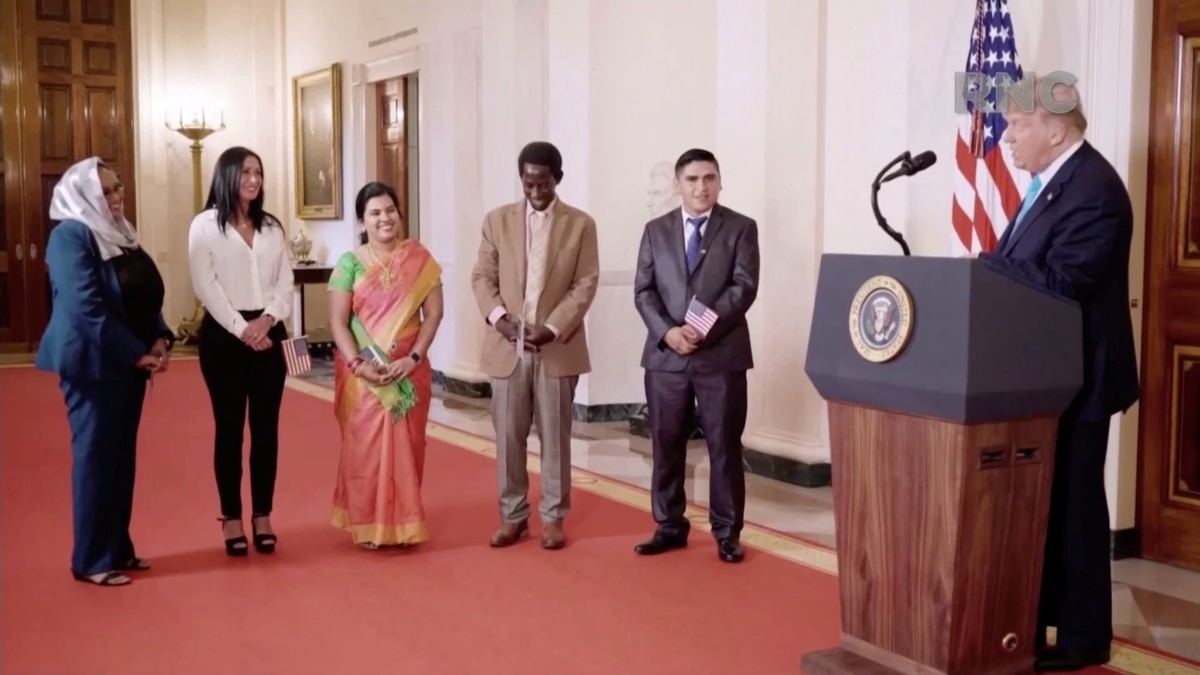U S Elections and Donald Trump’s shift on immigration policy proposal to offer green cards to Indian and other international students graduating from U.S. universities is significant . This change could potentially impact his chances in the upcoming election, depending on how various demographics perceive and respond to it.
Trump’s immigration policies during his presidency were marked by a focus on restricting immigration, emphasizing border security, and reducing the number of visas issued, particularly through initiatives like the travel ban and the reduction of the H-1B visa program. Offering green cards to international graduates, particularly those from countries like India who make up a large proportion of international students, marks a departure from his previous stance.
This proposal would likely be welcomed by international students and the higher education community. For years, U.S. universities have attracted top talent from around the world, and many of these students have aspired to stay in the U.S. post-graduation to contribute to the economy and gain further experience. However, stringent visa policies have often forced these graduates to leave the country, taking their skills and knowledge with them.
Providing a pathway to permanent residency would make the U.S. a more attractive destination for prospective students, potentially reversing a trend where international student enrollment has declined due to uncertainties around visa policies. This could also help universities financially, as international students often pay higher tuition fees and their presence enhances the diversity and global competitiveness of U.S. educational institutions.
From an economic standpoint, retaining highly educated graduates can be beneficial. These individuals are likely to fill high-demand roles in STEM (Science, Technology, Engineering, and Mathematics) fields, driving innovation and economic growth. By staying in the U.S., they can contribute to industries that are facing talent shortages, such as technology, healthcare, and engineering.

Moreover, the proposal could positively impact the labor market by alleviating some of the concerns employers have regarding the availability of skilled workers. Companies in Silicon Valley and other tech hubs have long advocated for more flexible immigration policies to retain top talent trained at U.S. universities. This alignment with industry needs could result in increased support from business leaders and entrepreneurs.
For Trump’s electoral prospects, this proposal could have mixed effects. On one hand, it may help him appeal to moderates and immigrant communities, particularly Asian Americans, who have traditionally viewed his immigration policies unfavorably. Indian Americans, a growing and increasingly influential voter demographic, might see this as a positive step, potentially increasing their support for Trump.
However, this shift might alienate some of Trump’s core supporters who favored his stringent immigration policies. These voters may perceive the proposal as a betrayal of his earlier promises to prioritize American workers and reduce immigration. Balancing these conflicting interests will be crucial for Trump’s .Democrats are likely to critique the proposal as insufficient or disingenuous, considering Trump’s overall record on immigration. They may argue that a comprehensive immigration reform is needed, rather than piecemeal measures. Additionally, some may view this as a strategic move to win votes rather than a genuine change in policy stance.
Trump’s campaign could leverage this proposal to reshape his image and appeal to a broader electorate. Emphasizing the economic benefits and framing the policy as a means to maintain America’s competitive edge could help mitigate backlash from his base. This strategy would require clear communication and consistent messaging to ensure that the benefits are understood across various voter demographics.
Trump’s proposal to offer green cards to international graduates represents a notable shift in his immigration policy, with potential implications for his election campaign. While it may attract support from international communities and business sectors, it risks alienating some of his core supporters. The ultimate impact on his electoral chances will depend on how effectively the campaign balances these interests and communicates the broader economic benefits of the policy. This move could signify an attempt to broaden his appeal and adapt to the evolving political landscape, but it will require careful navigation of the diverse perspectives within the American electorate.
4o



Leave a Reply